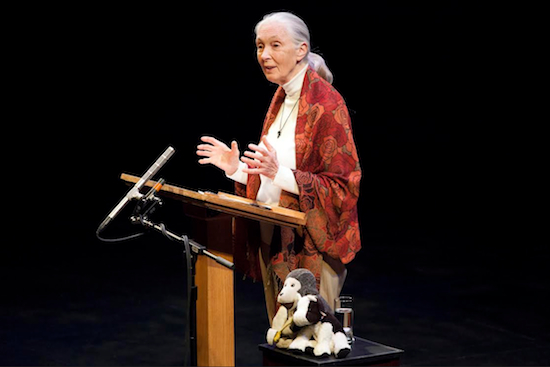Jane Goodall plants seeds of hope at BAM

Jane Goodall spends about 300 days out of every year traveling because she has a message to share. The renowned primate scientist told an absolutely packed house at the Brooklyn Academy of Music (BAM) Wednesday night that a big part of that message was that the indomitable human spirit was her reason for hope.
No small number of audience members appeared to be young girls, several of whom submitted questions to Goodall at the end of the program. An 11-year-old girl named Sabrina thanked Goodall for being an inspiration to girls everywhere.
Goodall had started her talk in chimpanzee, translating for everyone that the grunts she had uttered meant, “This is me, Jane.” Having spent the past five decades studying chimps, she knows a bit about how they communicate and behave. More importantly, she said, she had learned over the years that they were compassionate creatures — closely related to humans in DNA and temperament — that we can all learn from.
